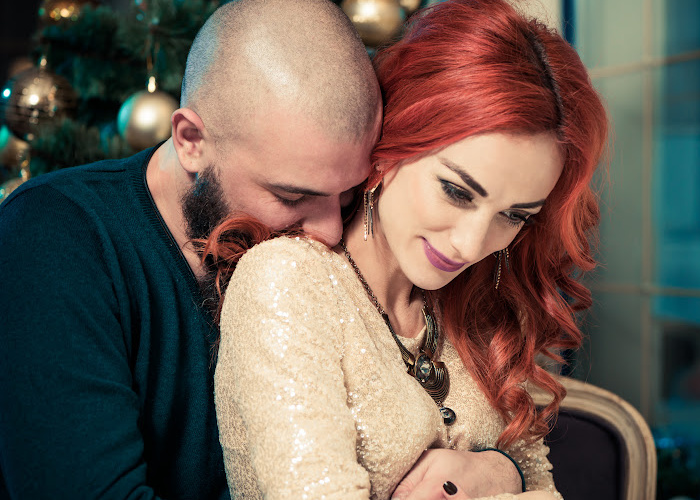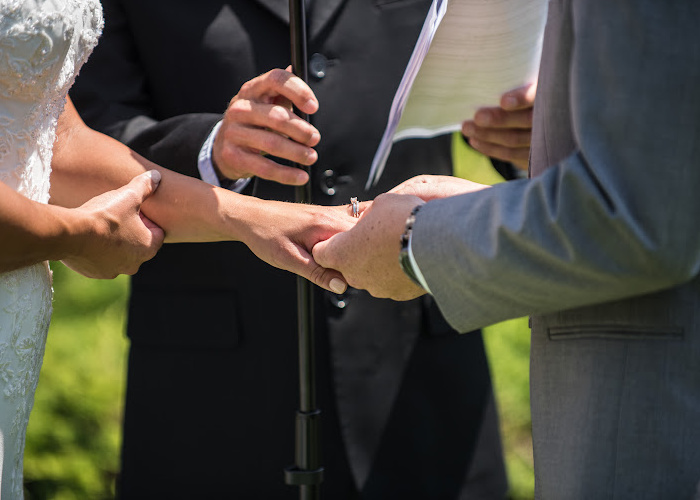It's crucial to know that students with autism and ADHD need special study strategies. Autism…

Do People with Autism Get Married and Thrive in Relationships?
In a world where love knows no bounds, it’s vital to recognize that individuals on the autism spectrum too can experience successful and fulfilling marriages.
A common question that arises is, “do people with autism get married?” Through understanding, empathy, and open communication, neurodiverse couples can debunk myths and misconceptions surrounding autism and marriage.
Prepare to delve into the world of neurodiverse relationships and discover the keys to unlocking a lifetime of love and companionship.
Key Highlights
- Autistic people can love and be loved, despite difficulties in emotional communication.
- A successful neurodiverse marriage is built on open communication, emotional support and understanding, and shared interests.
- Diagnosis can improve the success of a neurodiverse marriage by providing an understanding of challenges faced as well as access to resources that strengthen relationships.

Autism and Marriage: Debunking Myths
Society often harbors misconceptions about the capacity of autistic individuals to love, be loved, and handle the responsibilities of marriage.
However, these myths are far from the truth. In fact, many autistic individuals are part of successful and thriving marriages, proving that love indeed transcends all boundaries.
We will debunk these myths and reveal the reality of autism and marriage.
Myth: Autistic people can’t love or be loved
Contrary to popular belief, research has demonstrated that autistic individuals possess the capacity to love and form romantic relationships.
While previous studies have indicated that autistic people report lower satisfaction in their romantic relationships compared to non-autistic individuals, clinical experience has identified that most people with autism desire romantic relationships.
Also, research indicates that numerous autistic individuals pursue sexual and romantic relationships similar to the general population.
Autism can impact emotional expression, including facial expressions, leading to misinterpretations in relationships due to difficulties in expressing emotions or interpreting facial expressions of others.
Recognizing the unique ways autism shapes emotional communication can promote successful relationships and debunk the myth that autistic individuals can’t love or be loved.
Myth: Autism always leads to relationship difficulties
Another common misconception is that individuals with autism are unable to form meaningful relationships and will not experience meaningful futures.
This belief is unfounded, as autistic individuals, just like their neurotypical counterparts, can experience successful relationships and build strong connections.
Indeed, numerous autistic individuals are in successful relationships, proving that autism doesn’t always result in relationship difficulties.
The key to overcoming potential challenges in neurodiverse relationships lies in understanding and compromise.
By establishing a foundation of mutual understanding, expressing love and intimacy in their own individual manner, and actively participating in romantic relationships, autistic individuals can develop profound emotional connections and cultivate healthy and satisfying relationships.
Myth: Autistic individuals cannot handle the responsibilities of marriage
The belief that autistic individuals are unable to fulfill the responsibilities of marriage is yet another unfounded myth.
Marriage entails a considerable amount of responsibility for both parties, necessitating various sacrifices and financial stability for potential offspring.
Autistic individuals are just as capable of handling these responsibilities as neurotypical individuals.
Research has demonstrated that parents of children with ASD may experience lower levels of marital satisfaction and increased marital conflicts, potentially due to their own mental health issues.
However, it is essential to bear in mind that individual experiences may differ.
Given necessary patience and understanding, autistic individuals can experience successful, content, and satisfying marriages.

Keys to a Successful Neurodiverse Marriage
To build a successful neurodiverse marriage, couples should focus on open communication, emotional support and understanding, and shared interests and hobbies.
These elements form the foundation for a strong relationship, enabling couples to navigate the unique challenges that may arise due to the neurological differences between partners.
We will examine each of these key components in more detail.
Open communication
Open communication is essential in a neurodiverse marriage as it enables both partners to:
- Comprehend and accommodate each other’s distinctive communication styles and requirements
- Create trust
- Encourage empathy
- Avoid misapprehensions
Open communication also equips the couple to address issues, resolve disputes, and build a sturdy foundation for a successful relationship.
By being transparent in their communication and expressing their thoughts, emotions, and needs, couples can bridge the communication gap and strengthen their relationship.

Emotional support and understanding
Empathy is essential for providing emotional support to a partner with autism.
It facilitates the formation of connections, promotes healthy relationships, and conveys understanding and compassion.
Although some individuals with autism may find it difficult to cognitively empathize, many are able to strongly empathize emotionally.
By empathizing with their emotions, one can provide the necessary validation and support for their emotional well-being.
Understanding autism spectrum disorders can promote emotional support in a neurodiverse marriage by recognizing and understanding the neurological differences between partners.
Shared interests and hobbies
Having shared interests and hobbies in neurodiverse marriages can offer several advantages, especially for those dealing with mental health issues.
Primarily, it can enhance the individual support systems and connections of each partner as they partake in activities they both enjoy.
This can result in a stronger sense of companionship and mutual understanding.
Shared interests and hobbies can also provide a source of joy, pride, and accomplishment for both you and your partner.
Cultivating these shared interests can lead to the development of fulfilling hobbies and shared experiences.

Navigating Challenges in Neurodiverse Relationships
Neurodiverse relationships, which may involve a neurotypical person and an individual with sensory sensitivities, social skills deficits, and the need for adaptation to changes and routines, can face unique challenges.
Recognizing these challenges and developing strategies to address them is crucial to fostering a successful relationship.
We will examine each of these challenges and discuss how couples can manage them.
Sensory sensitivities
An autistic person may exhibit oversensitivity or undersensitivity to:
- noise
- light
- clothing
- and other sensory inputs
Sensory sensitivities can lead to discomfort or anxiety in response to certain stimuli, which can in turn affect communication, intimacy, and shared activities.
For a healthy and successful relationship, both partners need to be aware of and cater to each other’s sensory needs.
To manage sensory sensitivities in a neurodiverse marriage, it’s advisable to:
- Acknowledge and understand one’s own sensitivities
- Openly discuss them with the partner
- Create a sensory-friendly home environment
- Establish routines for predictability to reduce sensory overload
- Practice self-care and stress management techniques
- Seek professional support and therapy if needed
Social skills and behavior
Individuals with autism tend to encounter difficulties in regards to social skills, such as forming and sustaining relationships, reciprocating social interactions, non-verbal communication, and delayed speech development.
Autistic couples may benefit from reinforcing positive behavior, modeling desired behaviors, role-playing, and gradually practicing new skills.
Additionally, watching videos, utilizing social stories™, and minimizing social stressors may be beneficial. It is recommended to begin with the fundamentals and advance in stages.
Adapting to change and routines
The rigidity of routines in neurodiverse relationships can have both beneficial and detrimental effects.
On the one hand, having a rigid routine can provide comfort and reduce stress for individuals with neurodiverse conditions such as autism, helping them to feel more secure and in control.
On the other hand, excessive rigidity can lead to difficulty in adapting to change and can hinder the flexibility needed for a healthy and balanced relationship.
Hence, finding a balance between maintaining routines and openness to adaptability is necessary for a successful neurodiverse relationship.

Supporting Your Autistic Partner
Supporting an autistic partner involves educating oneself about autism, developing effective communication styles, and encouraging self-awareness and coping strategies.
By understanding the unique challenges faced by autistic individuals and offering specialized support, couples can strengthen their relationships and create a nurturing environment in which both partners can thrive.
Educate yourself about autism spectrum disorders
Gaining knowledge about autism spectrum disorders can be aided by consulting resources such as the CDC (Centers for Disease Control and Prevention) website, We Are Teachers website, and Speech Improvement Center.
These resources can provide valuable information and insights into autism spectrum disorders, including the primary characteristics associated with autism spectrum disorders, the potential effects of autism spectrum disorder on adults, and the types of autism spectrum disorders.
By educating oneself about autism and its implications, one can better support their autistic partner and create a strong foundation for a successful relationship.
Develop effective communication styles
In order to foster effective communication with an autistic partner, it is important to:
- Practice self-reflection and self-awareness to comprehend one’s own communication style and needs
- Utilize clear language and visual aids to improve comprehension
- Concentrate on the person’s strengths and interests to forge a stronger bond
- Create space for addressing matters and provide time for the person to process information
- Time conversations appropriately and be cognizant of the manner of delivering information
By developing effective communication styles, including understanding body language, tailored to the needs of their autistic partner, couples can bridge the communication gap and strengthen their relationship.
Encourage self-awareness and coping strategies
Fostering self-awareness and coping strategies in an autistic partner is significant as it assists them in comprehending their own requirements, emotions, and stimuli.
It enables them to create efficient techniques to control stress, anxiety, and sensory overload. This self-awareness and the capacity to manage difficulties can result in enhanced communication, decreased meltdowns, and a greater sense of autonomy and well-being in the relationship.
Understanding your partner’s perspective is crucial in supporting their growth and maintaining a healthy connection.
Various strategies can be employed to promote self-awareness in individuals with autism, including:
- Offering opportunities for self-reflection and self-expression
- Utilizing visual supports and social stories
- Teaching self-monitoring techniques
- Incorporating social skills training
- Encouraging self-advocacy
- Fostering a supportive environment

The Role of Diagnosis in Neurodiverse Marriages
Diagnosis can play a crucial role in the success of neurodiverse marriages, benefiting both the autistic partner and their spouse by providing greater insight into the challenges they face, enabling them to access support, and ultimately strengthening their relationship.
We will analyze the benefits of obtaining an autism diagnosis for both partners in a neurodiverse marriage.
Benefits of diagnosis for the autistic partner
An autism diagnosis can improve an autistic individual’s self-awareness by providing them with a heightened understanding of their own experiences and challenges.
It enables them to:
- Access support and resources tailored to their specific needs
- Facilitate the development of self-understanding
- Increase positive self-awareness Furthermore, the diagnosis can:
- Validate their experiences
- Offer a sense of self-esteem and empowerment.
A diagnosis can also give an autistic individual a deeper understanding of themselves and their experiences, enhancing their overall well-being.
How diagnosis can strengthen the relationship
An autism diagnosis can enhance communication and empathy in the relationship by providing increased insight into one’s own and their partner’s needs.
With a diagnosis, individuals can access support and resources to improve communication, manage emotions, and navigate social interactions, leading to improved relationship dynamics and reduced conflicts.
By recognizing and addressing the specific challenges associated with autism that may arise in relationships, couples can strengthen their connection and create a supportive environment for both partners.
Finding professional support and resources
Obtaining professional support and resources can assist the autistic partner and their partner in gaining greater insight into and managing the difficulties of a neurodiverse relationship.
Professional support for neurodiverse marriages can include specialized therapy and counseling services, which can provide guidance, strategies, and tools to assist couples in addressing the unique challenges that may arise in their relationship.
Furthermore, there are support groups and online communities available for neurodiverse couples to connect with others who are facing similar experiences and exchange advice and support.

Parenting in Neurodiverse Marriages
Parenting in neurodiverse marriages can present unique challenges and opportunities for growth.
By balancing parenting responsibilities, supporting the child’s understanding of autism, and building a strong family unit, couples can create a nurturing and inclusive environment for their children.
We will discuss the strategies and considerations for parenting in neurodiverse marriages.
Balancing parenting responsibilities
In a neurodiverse marriage, potential challenges related to sharing parenting responsibilities may include:
- An imbalance in responsibility
- A lack of support from extended family
- Difficulties in marital interactions
- Different communication styles
By developing an awareness of their own communication styles and those of their partner, neurodiverse couples can enhance their ability to divide parenting tasks and support their children.
It is advantageous for them to recognize each other’s strengths and limitations, and to devise approaches that are beneficial to both.
Supporting your child’s understanding of autism
Parents in a neurodiverse marriage can explain autism to their child by emphasizing the importance of acceptance for all individuals, including those with autism.
They can explain that autism is a neurological condition that affects how a person communicates and interacts with others.
It is essential to use language and examples that are appropriate for the child’s age to aid in their understanding.
Parents should also encourage open communication and create a supportive environment where the child feels comfortable asking questions and expressing their feelings.
Building a strong family unit
Establishing a strong family unit is important for the well-being of both parents and children in a neurodiverse marriage. Here are some strategies to help create a strong family unit:
- Embrace differences
- Provide direct teaching and learning
- Establish schedules and routines
- Prioritize self-care
- Emphasize effective communication
- Explore therapy techniques that consider neurodiversity
- Cultivate commitment and acceptance
- Reflect on conflicts
By following these strategies, neurodiverse couples can create a strong family unit and foster an environment of love and support for their children.

Real-Life Stories: Autistic Couples and Their Marriages
The real-world stories of autistic couples and their marriages offer insight and inspiration for others in similar situations.
Notable examples include David Hamrick and Lindsey Nebeker, who were highlighted in the documentary ‘Autism in Love’, as well as Chris Fischer and Amy Schumer, with Chris being diagnosed with autism spectrum disorder.
These stories demonstrate that individuals on the autism spectrum can have successful marriages and that love transcends neurological differences.
Final Thoughts
In conclusion, neurodiverse marriages can be successful and fulfilling when both partners embrace understanding, empathy, and open communication.
By debunking myths surrounding autism and marriage, supporting one another through challenges, and fostering a strong family unit, couples can navigate the unique dynamics of neurodiverse relationships and create a lifetime of love and companionship.
Embrace the beauty of neurodiversity and celebrate the love that knows no bounds.

Frequently Asked Questions
Here are some common questions and answers about neurodiverse marriages and relationships, aiming to clarify misconceptions and provide understanding.
Is it hard to be in a relationship with someone with autism?
Relationships with autistic partners can be difficult since they are blind to everyday subtle social cues. This can cause conflict and hurt feelings, making marriage one of the hardest things to do in life.
Can people with autism have children?
Yes, people with autism can have children. There is a chance of passing on certain genetic conditions associated with autism, but many couples where one or both partners are on the autism spectrum choose to have children and research suggests it is generally a positive experience.
Can a person with autism have a normal life?
People with autism are capable of leading a normal life, and research has shown that the right support and resources can help ensure they have the chance to do so. With appropriate therapy and other interventions, individuals with autism spectrum disorder can date, make friends, attend college, get married, become a parent, or have a satisfying career.
Can autistic individuals have successful marriages?
Yes, autistic individuals can have successful marriages with patience and understanding.
How can couples improve communication in a neurodiverse marriage?
To improve communication in a neurodiverse marriage, couples should strive for open and honest dialogue, prioritize finding solutions, and demonstrate patience and understanding.



This Post Has 0 Comments